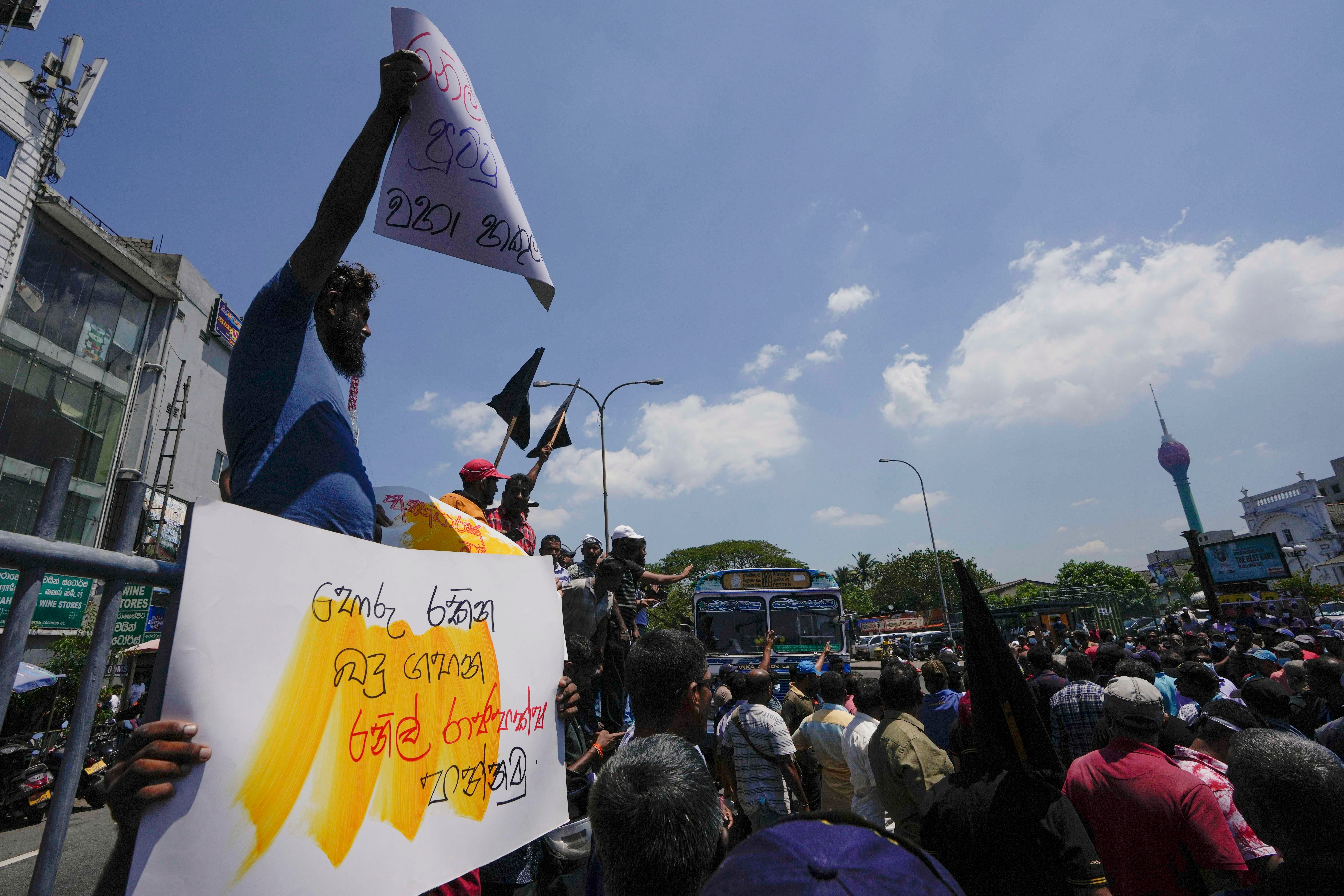IMF approves crucial $3B bailout for bankrupt Sri Lanka
The International Monetary Fund says its executive board has approved a nearly $3 billion bailout program for bankrupt Sri Lanka

The International Monetary Fund said Monday that its executive board has approved a nearly $3 billion bailout program for Sri Lanka over four years to help salvage the country's bankrupt economy.
About $333 million will be disbursed immediately and the approval will also open up financial support from other institutions, the IMF said.
“Sri Lanka has been facing tremendous economic and social challenges with a severe recession amid high inflation, depleted reserves, an unsustainable public debt, and heightened financial sector vulnerabilities," its statement quoted IMF Managing Director Kristalina Georgieva as saying.
“Institutions and governance frameworks require deep reforms. For Sri Lanka to overcome the crisis, swift and timely implementation of the EFF-supported program with strong ownership for the reforms is critical.”
The approval will unlock financing of up to $7 billion from the IMF and other international multilateral financial institutions, President Ranil Wickremesinghe's office said.
Earlier this month, the last hurdle for the approval was cleared when China joined Sri Lanka's other creditors in providing debt restructuring assurances.
“From the very start, we committed to full transparency in all our discussions with financial institutions and with our creditors," Wickremesinghe said in a statement from his office. "I express my gratitude to the IMF and our international partners for their support as we look to get the economy back on track for the long term through prudent fiscal management and our ambitious reform agenda.”
Wickremesinghe said he has made some tough decisions to ensure stability, debt sustainability and to grow an inclusive and internationally attractive economy.
Sri Lanka increased income taxes sharply and removed electricity and fuel subsidies, fulfilling prerequisites of the IMF program. Authorities must now discuss with Sri Lanka's creditors on how to restructure its debt.
“Having obtained specific and credible financing assurances from major official bilateral creditors, it is now important for the authorities and creditors to make swift progress towards restoring debt sustainability consistent with the IMF-supported program," Georgieva said.
“The authorities’ commitments to transparently achieve a debt resolution, consistent with the program parameters and equitable burden sharing among creditors in a timely fashion, are welcome,” she said.
Sri Lanka last year suspended repayment of its foreign debt amid a severe foreign currency crisis, because of a fall in tourism and export revenue due to the COVID-19 pandemic, megaprojects funded by Chinese loans that did not generate income, and releasing foreign currency reserves to hold the exchange rates for a longer period.
The currency crisis created severe shortages of some foods, fuel, medicine and cooking gas, leading to angry street protests that forced then-President Gotabaya Rajapaksa to flee the country and resign.
Since Wickremesinghe took over, he has managed to reduce shortages and ended hours-long daily power cuts. The Central Bank says its reserves have improved and the black market no longer controls the foreign currency trade.
However, Wickremesinghe' s government is likely to face hostility from trade unions over his plans to privatize state ventures as part of his reform agenda and public resentment may increase if he fails to take action against the Rajapaksa family, who people believe were responsible for the economic crisis.
Wickremesinghe's critics accuse him of shielding the Rajapaksa family, who still control a majority of lawmakers in Parliament, in return for their support for his presidency.
___
Find more AP Asia-Pacific coverage at https://apnews.com/hub/asia-pacific
Bookmark popover
Removed from bookmarks